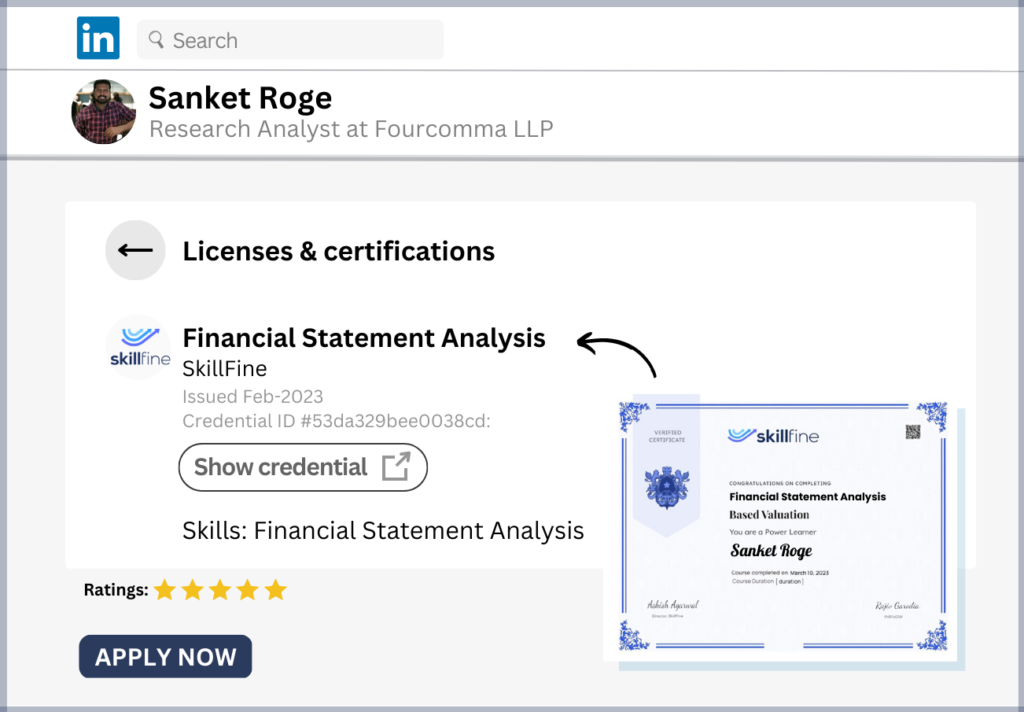Owning shares in a company is an excellent way of building wealth over the long term. Stocks can offer outstanding returns when you pick the right company at the right time. However, investing in stocks isn’t for everyone. Many people feel stock market investing is too risky or complicated. In fact, many potential investors are put off by stories of rapid ups and downs from the stock market. They assume it’s only for rich, sophisticated investors with insider knowledge and a team of advisors on hand to help them make informed decisions.
Investors with this view fail to realize that behind every great stock there is a great company – one prepared to take advantage of opportunities and withstand challenges ahead. There are plenty of fantastic financial instruments out there waiting for you to discover them as well as invest in them. The trick is finding these opportunities.
The smart way to invest in stocks
Stocks are the key building block of every investment portfolio. When you invest in stocks, you are purchasing partial ownership of companies that trade publicly on stock exchanges. Even though there are several ways to invest in stocks, it’s important to remember that investing in stocks is inherently risky.
When you buy stocks, you are investing your money in companies that aren’t guaranteed to succeed. The value of your investment will rise or fall based on how well the company performs. Stocks are a long-term investment.
You should never buy stocks with the expectation that you will be able to sell them quickly for a profit. When you buy stocks, you are investing in a company’s long-term success. This means you should only purchase stocks after conducting extensive research. You should also have a clear investment plan for your stocks, outlining when you intend to sell them and for what price.
Mutual funds
A mutual fund is a type of fund that pools money from many investors and then uses that money to purchase a variety of different stocks. Mutual funds offer investors the ability to diversify their portfolios and gain access to assets they might not be able to purchase on their own, while lowering the cost of investing.
There are many types of mutual funds, with some specializing in specific sectors or regions around the world. Mutual funds come in two flavors: actively managed funds and passively managed funds. Actively managed funds employ a team of fund managers who decide which stocks to buy and sell. Passive funds, on the other hand, aim to replicate the performance of an index.
While actively managed funds allow you to potentially outperform the market, passive funds aim to match the performance of an index like the S&P 500.
Exchanged-Traded Fund Options
Exchange-traded funds (ETFs) are a type of fund that tracks an index, a commodity or a basket of assets like an index fund. ETFs are traded on stock exchanges and are priced throughout the day like a stock. You can purchase ETFs on your own or through a robo-advisor. ETFs typically have lower management fees than mutual funds.
When investing in ETFs, it’s important to understand their underlying index. There are several different types of indexes, each with their own methodology for selecting stocks and weighing their importance. While ETFs will always track the index they’re tied to, there is often some leeway for fund managers to deviate from the index.
This can become problematic if a fund manager switches to a more profitable index, but fails to switch back when the new index is no longer profitable.
Forex and CFDs
Exchange-traded funds (ETFs) are a type of fund that tracks an index, a commodity or a basket of assets like an index fund. ETFs are traded on stock exchanges and are priced throughout the day like a stock. You can purchase ETFs on your own or through a robo-advisor. ETFs typically have lower management fees than mutual funds.
When investing in ETFs, it’s important to understand their underlying index. There are several different types of indexes, each with their own methodology for selecting stocks and weighing their importance.
While ETFs will always track the index they’re tied to, there is often some leeway for fund managers to deviate from the index. This can become problematic if a fund manager switches to a more profitable index, but fails to switch back when the new index is no longer profitable.
Commodities
Investing in commodities is a way to diversify your portfolio and reduce your risk. The commodities market can be quite volatile, so commodities are best used as a small portion of your overall investment portfolio. Most commodities are traded through futures contracts, which are agreements to buy or sell a certain amount of a commodity at a predetermined price on a specified date in the future.
The most common commodities include crude oil, gold, silver, copper and agricultural products like corn and wheat. Commodities can be a great way to grow your portfolio, but they can also be very risky. Commodities prices are notoriously volatile, so you need to be prepared for dramatic price swings in either direction. You should only invest in commodities if you’re willing to accept this level of risk.
Bonds
Investing in bonds is a way to earn a predictable yield on your investment. Bonds can be issued by both governments and corporations. Governments use bonds to raise money for various projects, such as building a new highway or funding a new program. Corporations use bonds to finance their growth, expansion and other ventures.
In exchange for lending the company money, the investor is given a set amount of interest each year. This can be a good option if you want a relatively low-risk investment with a predictable return. Bonds are a very popular way to invest money. There are many different types of bonds, from government to corporate debt to municipal bonds. You can purchase individual bonds or funds that invest in many different bonds.
Other Ways to Invest in the Stock Market
There are a number of alternative ways to invest in the stock market, but keep in mind that these investments typically don’t have the same growth potential as stocks. They also tend to have higher risk, so they’re better suited to investors who can stomach the ups and downs of the stock market.
Real estate: Investing in real estate can be a good way to generate income, but it’s also a risky way to invest. Real estate investment trusts (REITs) are one way to invest in real estate without dealing with the headaches of hiring a contractor and managing the project yourself.
Private equity: Private equity firms invest in privately held companies with the goal of taking them public. If you’re a long-term investor willing to accept the risk, private equity can be a good way to make money. Precious metals: While gold and silver are used as a store of value, they don’t generate cash like a dividend-paying stock or interest from a bond.
The Basics of Investing in Stocks
When you invest in stocks, you are purchasing partial ownership of a company. When you buy a stock, you are buying a piece of that company and you are entitled to a portion of the company’s profits, as well as its assets in the event of a liquidation.
There are many ways to invest in stocks, but the most common way is to purchase individual stocks. When you buy individual stocks, you are trying to predict which company will perform best. When you invest in stocks, you have to be prepared for a certain amount of risk.
There will be good years and bad years, so don’t expect to earn a consistent rate of return every year. Stocks are a long-term investment. When you buy stocks, you should be investing with a time horizon of five years or more. You should never buy stocks with the expectation that you will be able to sell them quickly for a profit.
Conclusion
Financial instruments are the key building block of every investment portfolio. When you invest in stocks, you are purchasing partial ownership of companies that trade publicly on stock exchanges. Stocks are a long-term investment.
You should never buy stocks with the expectation that you will be able to sell them quickly for a profit. When you buy stocks, you are investing in a company’s long-term success. When you invest in stocks, you are taking a risk. However, this risk can pay off significantly if you pick the right company at the right time.
Related Courses: Credit Analysis Skills Training Courses



6 thoughts on “Top 5 Essential Financial Instruments for Investors”
[…] of the key takeaways from “The Big Short” is the exposure it provides to complex financial instruments such as mortgage-backed securities and collateralized debt obligations. Lewis demystifies these […]
[…] are financial instruments that represent ownership in a company. When investors buy stocks, they are essentially purchasing a […]
From start to finish, this blog post had us hooked. The content was insightful, entertaining, and had us feeling grateful for all the amazing resources out there. Keep up the great work!
I appreciate your creativity and the effort you put into every post. Keep up the great work!
I appreciate you sharing this blog post. Thanks Again. Cool.
I do not even understand how I ended up here, but I assumed this publish used to be great